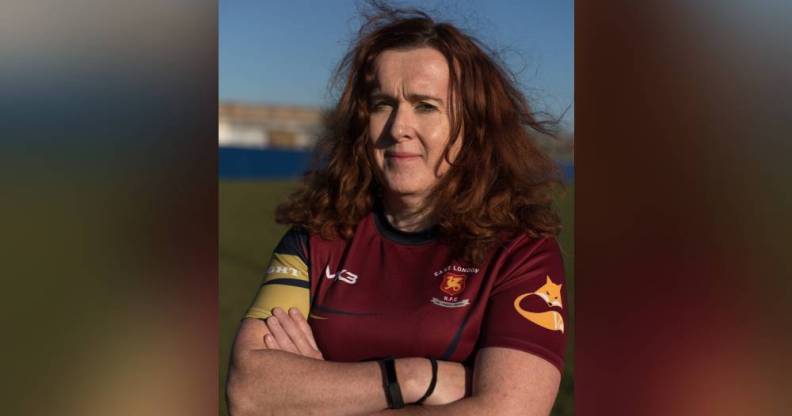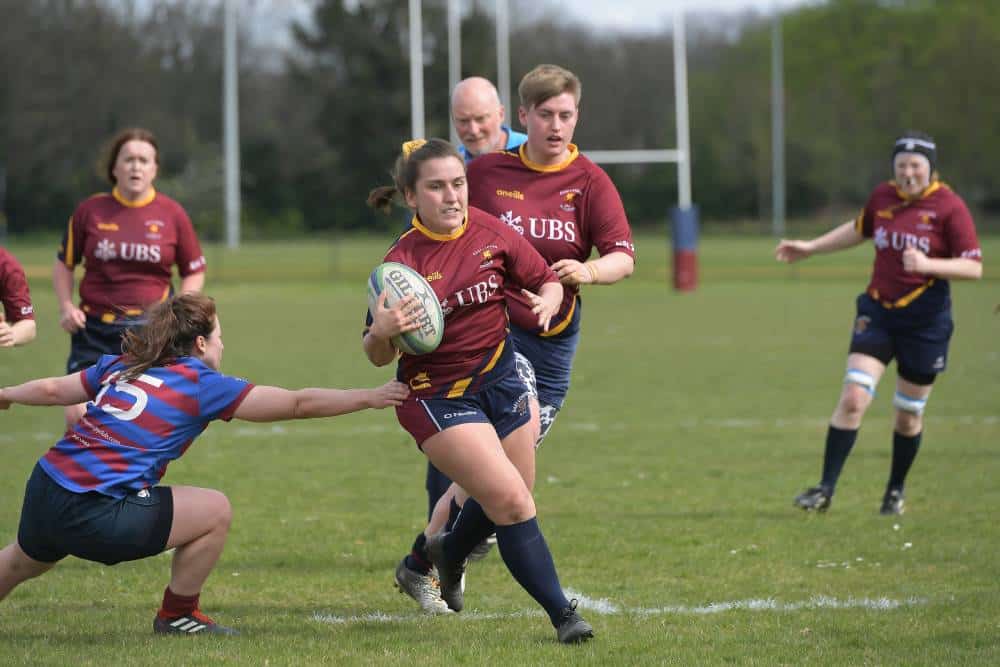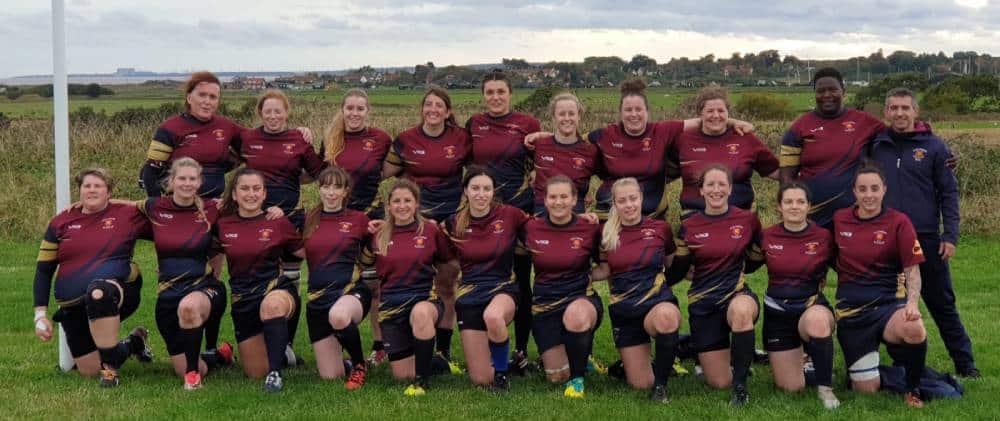Trans woman who found herself through rugby says ban would make her life ‘a little less’

Alix Fitzgerald says her urge is to “go forward all the time” despite proposals that would ban her from playing rugby with her supportive teammates. (Provided)
As the Rugby Football Union proposes banning trans women from the sport, one player explains how it helped her find freedom and a chosen family.
Rugby was “always around and about” Alix Fitzgerald’s life, long before she began playing with the East London RFC Vixens.
She remembers watching teams battle in the Five Nations tournament – which would become today’s Six Nations championships – on cold days in February with her dad drinking “cups of tea” as a fire heated the room.
They felt “uncomfortable” playing rugby when they were young because “school teams sports” were just not their “thing”.
Fast forward “maybe 15 years”, and Fitzgerald began transitioning and figuring out where they fit in the world.
“You do this thing where you kind of think you know what to expect, but you definitely don’t,” Fitzgerald tells PinkNews.
“I found myself trying to be somebody I was not, which was really weird because I’m going on this journey and it’s really brilliant but also very confusing.
“You start trying to make yourself small and fit into those small boxes that women are ‘supposed’ to fit into, and just small in all senses – small physically, small in terms of the space to actually occupy in the world.”
View this post on Instagram
Fitzgerald remembers signing up for a personal training session that would eventually change their outlook.
When they came out as trans to the trainer, she said that she had already tailored a programme to help Fitzgerald achieve a more stereotypically ‘feminine’ body shape.
“Oh my God, in that moment, to be seen by somebody by somebody like that and in such a clear way, it was really, really powerful,” Fitzgerald says.
“I had this thing where I said: ‘OK, I’m now going to go and do a thing.’ I’d always regretted never playing rugby.”
She went to the Rugby Football Union (RFU) website and registered as a player. At the time, she didn’t think she’d be good at or not even like the game – but then the “opposite happened”.
“It becomes all consuming because rugby is such an intensely physical sport – regardless of the contact element – it requires so much out of you mentally,” she says.
“It’s a place to be completely in the moment and to be yourself. You get judged on what you can do as opposed to what you are, and it’s wonderfully liberating.
“You come off the field with nothing left. Being that physically embodied in the world, even for just a few minutes, is just fantastic.”
She has connected with people from all backgrounds and walks of life through rugby, and her wife is even involved making food for people to enjoy on Sunday.
But on Friday (29 July), the Rugby Football Union will vote on a proposed ban on trans women playing the sport in England.
It could stop Fitzgerald from doing what she loves – chasing a “funny shaped ball around a random, muddy field”.

Alix Fitzgerald (seen in the top left background) says rugby is an “incredible sport” that welcomes people of all sizes, shapes and backgrounds. (Provided)
The RFU will vote on a recommendation for a “policy change for contact rugby to only permit plays in the female category whose sex recorded at birth was female”. The measure will allow trans men to continue to play the sport “if they provide their written consent and a risk assessment is carried out”.
The governing body says it has considered “peer reviewed research” which claimed there are “physical differences between those people whose sex was assigned as male and those as female at birth, and advantages in strength, stamina and physique brought about by male puberty are significant and retained even after testosterone suppression”.
It said this “science” provided the basis of the recommendation that trans women playing in “female contact rugby cannot be balanced against considerations of safety and fairness”.
If the RFU Council votes in favour of the ban, it will be introduced ahead of the 2022/23 season.
The proposal has sparked widespread outrage from rugby clubs, coaches, players and fans who firmly believ the sport is for everyone.
People will gather outside the RFU’s headquarters on Friday to protest the anti-trans measure.
Fitzgerald says that she is among maybe “six or seven” trans women registered to play rugby in England. With such a small number of trans women playing the game, she feels like the “rubbish” ban is the RFU’s way of dealing with an “unknown” issue by “just completely pushing it away”.
They say much of the research about trans peoples’ performance in sport is “dubious” at best, with some being “contradictory” with other research. Fitzgerald adds there is a lot of “cherry picking going on” to reinforce anti-trans arguments.
She believes the ban will go into effect and, even if it does eventually get overturned, it may be “too late” for her to continue playing with her rugby family.

Alix Fitzgerald worries the RFU’s proposed ban could stop her from ever playing again with her East London Vixens teammates.(Provided)
“It makes me sad that we are in this kind of world where this will make my life a little less,” Fitzgerald says. “What makes it even sadder is some people are going to go: ‘Good.’
“My urge is to go forward. Don’t take a step back.
“Job number one is make sure the scrum doesn’t go backwards. That’s what this feels like. It feels like the world is pushing hard to push me out, and I’m pushing back as hard as I can because people before me fought for the rights that I have.”
Kat Salthouse, the Vixens player and vice-chair who is also women’s rugby officer for the East London club’s management committee, called on the RFU to “do the right thing” and “support inclusion” by rejecting “any policy that brings in a ban”.
Salthouse said there is a “place” for everyone on the rugby pitch “regardless of shape, size or how you identify”.
When it comes to Alix Fitzgerald, she is an “integral part” of the Vixens, Salthouse said.
“We embraced and nurtured her like every other player that becomes part of our rugby family. I am proud to stand shoulder to shoulder with her on and off the pitch as we all represent the East London badge with pride.”

